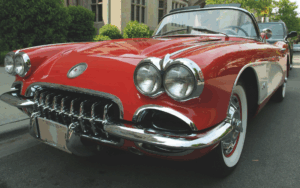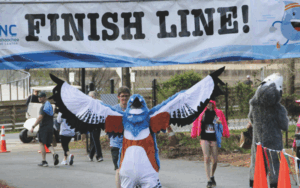Good meals, good neighbors and even better causes
By Jennifer Colosimo
One foot inside the door at Casa Nuova and you feel like family. Perhaps it’s because you got a hug from Cari Fundora, or maybe your favorite server is waving hello or maybe it’s because you have a standing reservation every Friday night. Whatever the reason—that feeling is on purpose.
When Tony Fundora came to America 75 years ago, he stuck to values that included working hard, working for yourself and taking care of people. He and his wife, Maria, instilled the same values in their children, and today, three years after Tony passed away, they’re running it the way he taught them, together.
“We are one of the few mom-and-pop restaurants left and that’s what sets us apart,” said Cari. “Our regulars have seen me and my brothers grow up here. We’ve seen the power of our community and what it can accomplish. People say that we make them feel like family and this is an extension of our home—that’s how we want you to feel.”
In-house it’s the same. Almost all their employees have been with them for over two decades. When Covid hit, it was less about making it to the other side of a pandemic and more about taking care of their community during hard times. “Growing up, seeing how my mother helped others left an impression on me,” said Maria. “We had nothing, but what we did have, we shared.”
When Casa Nuova opened in Alpharetta, if a cause aligned with the things that were important to the Fundoras—like hunger, helping the poor, supporting education, youth teams or health issues, to name a few—they jumped at the chance. Along with Cork & Glass next door, Maria and oldest brother Pepe’s project, they still hardly ever say no.
In addition, Maria founded Purple Pansies in 2008, a nonprofit that raises funds and awareness for pancreatic cancer, provides grants to families going through treatment, funds scholarships for children whose guardians have died from or are facing it and for research toward finding a cure. In their 15th year, they’ve raised more than $6 million and have been a part of the development of a new drug series in clinical trials to cure or treat Stage 4 pancreatic cancer as well as focusing on early detection.
“People may not remember what they ate here,” said Maria. “But they always remember how they felt when they were here, and they come back for that. That’s something that we’re really, really proud of.”









